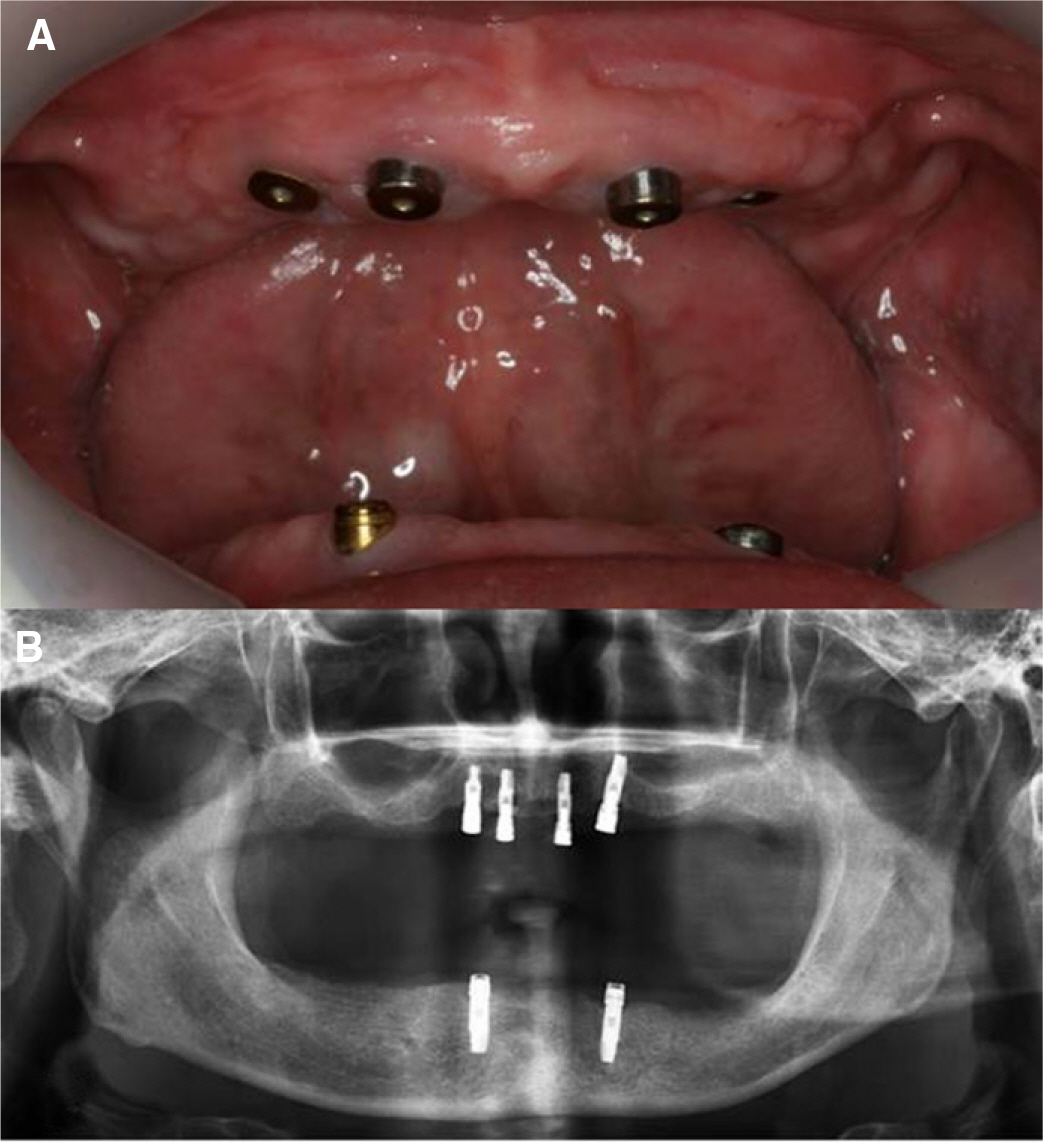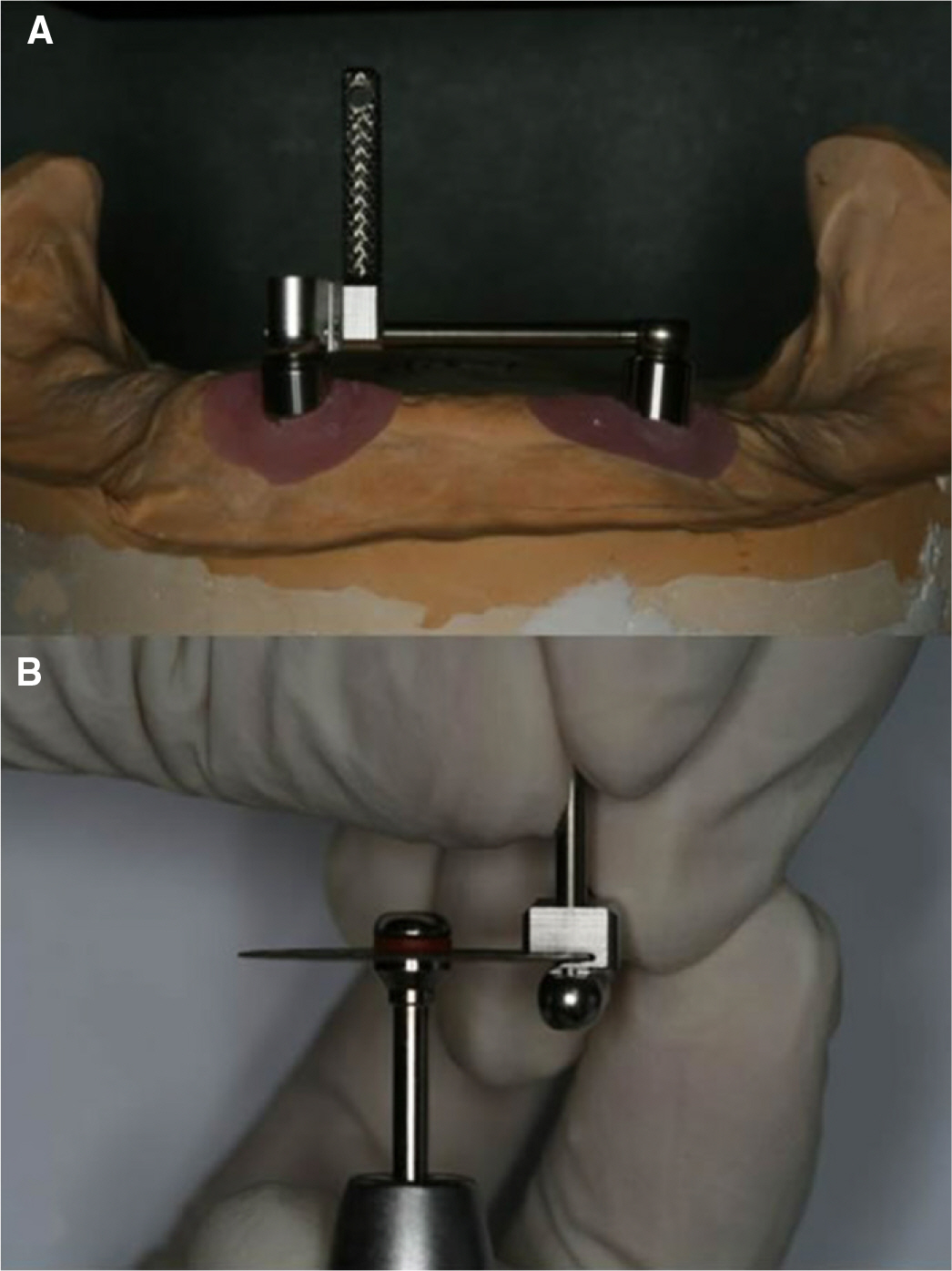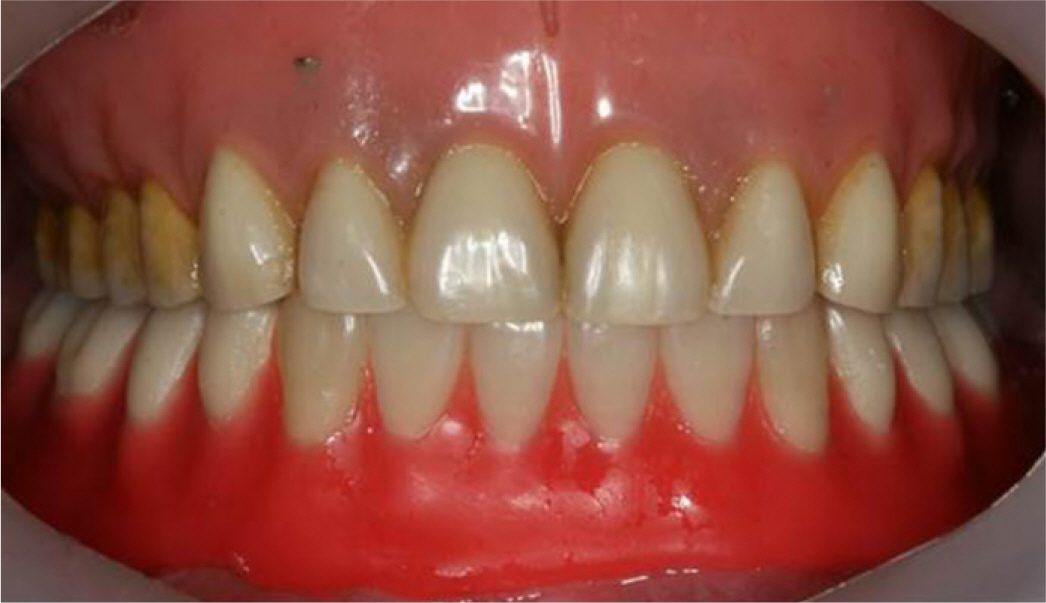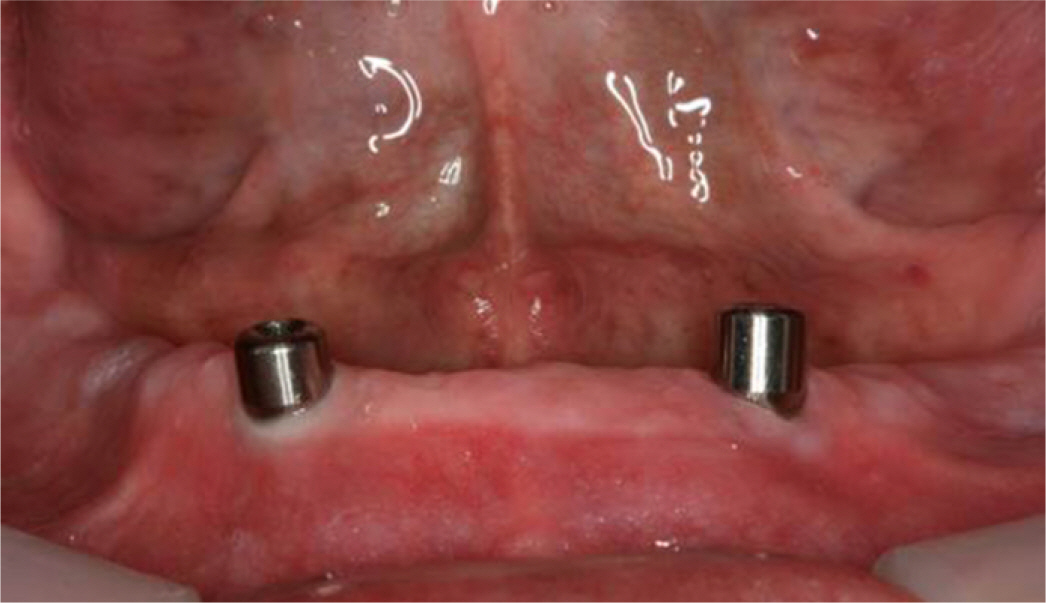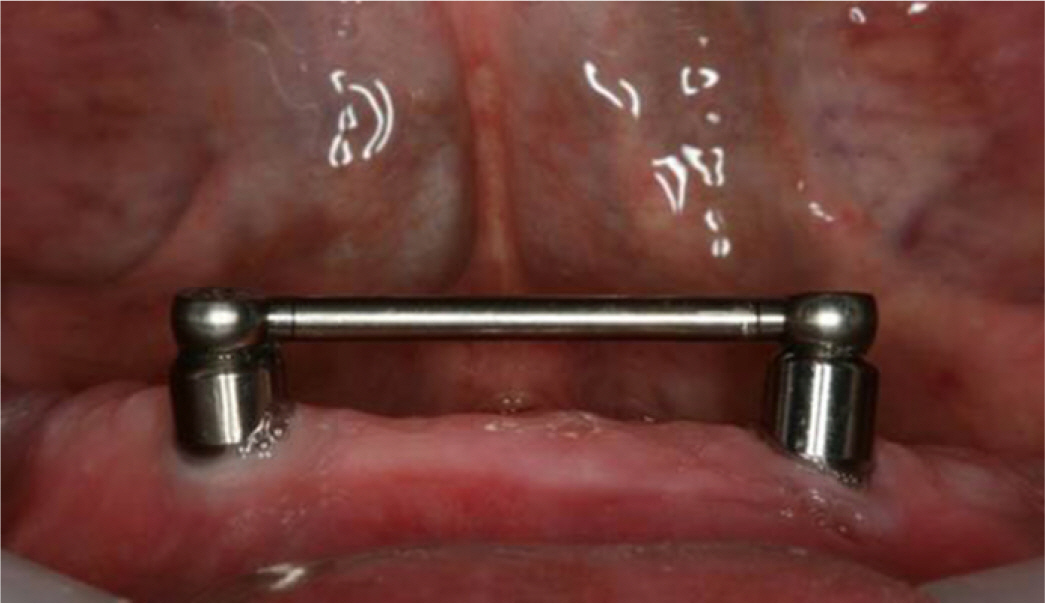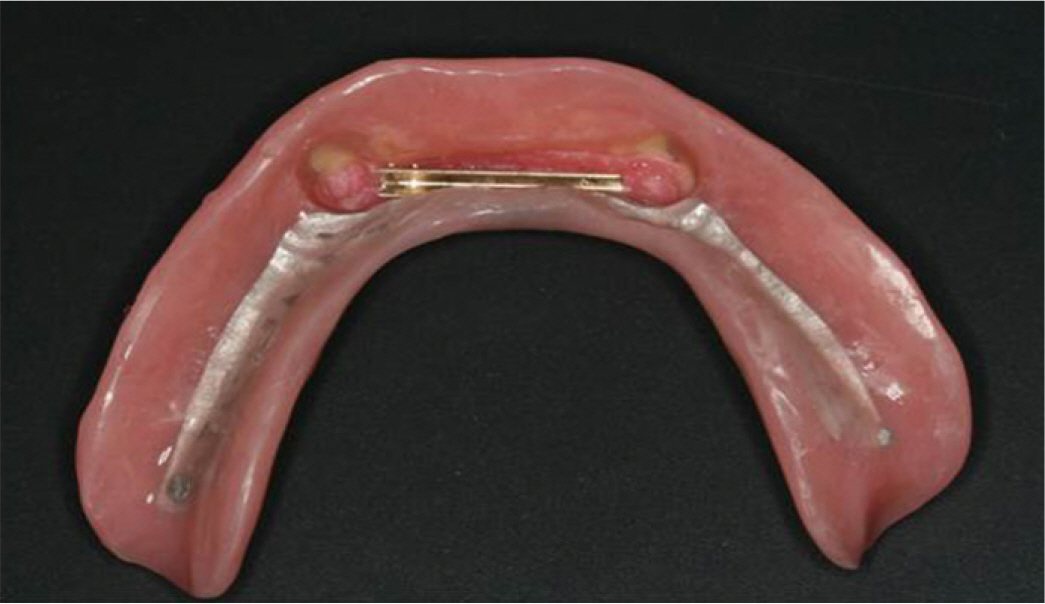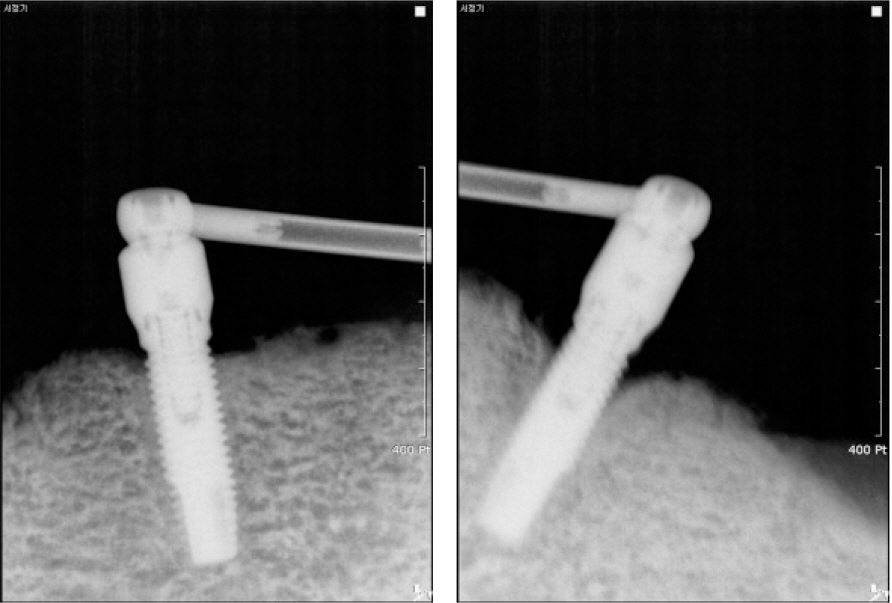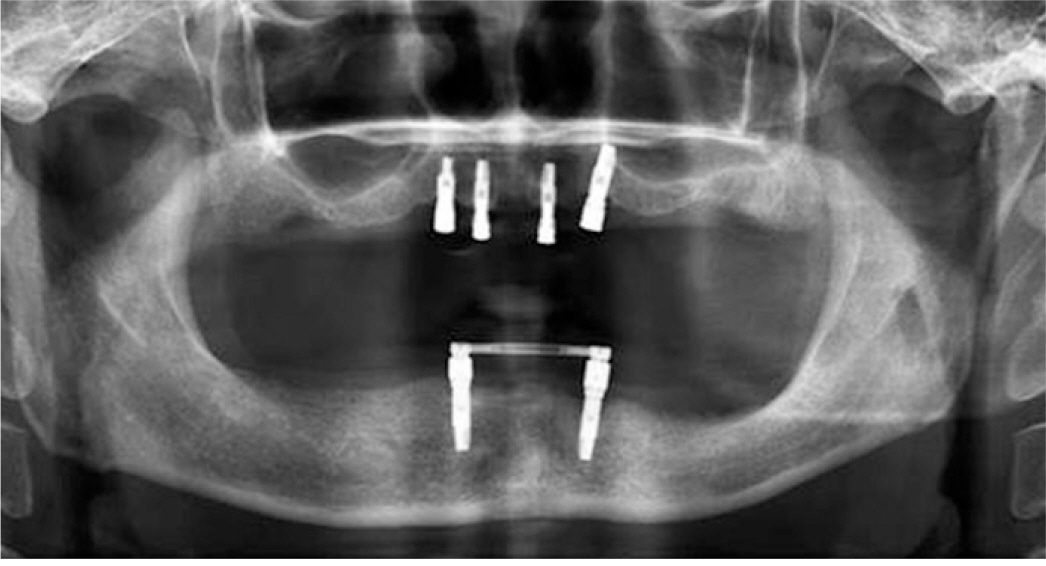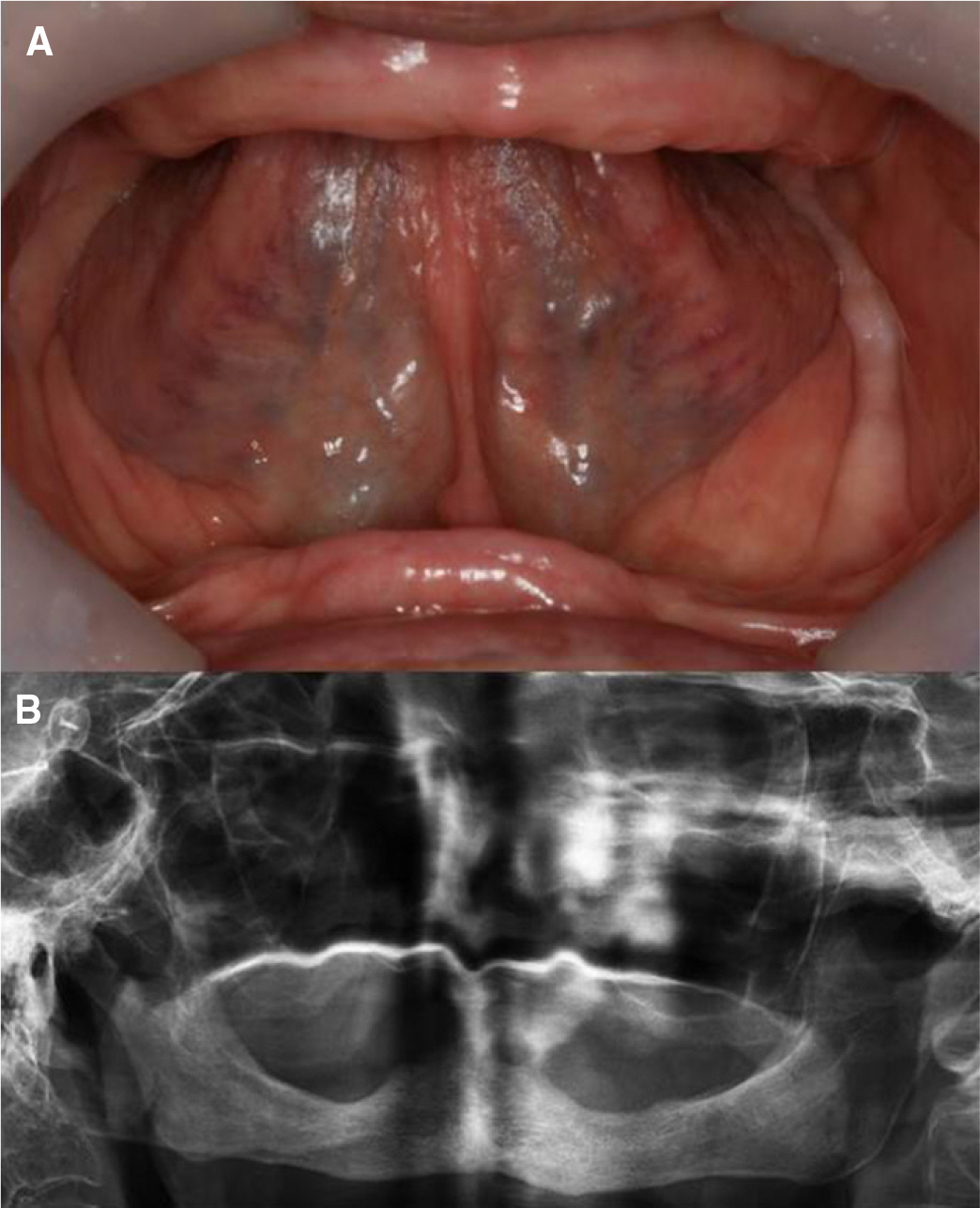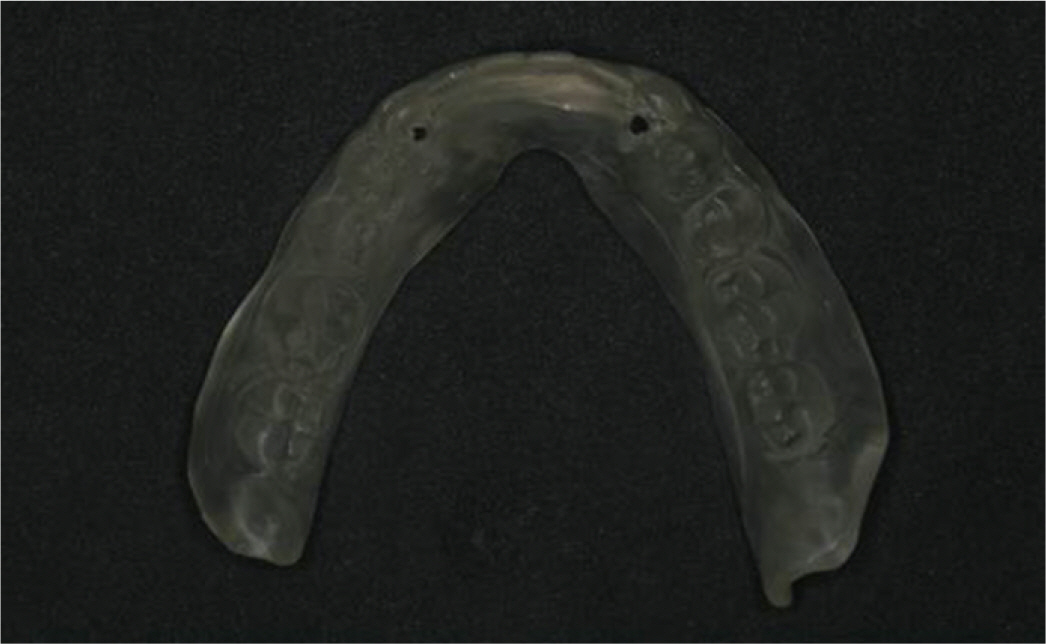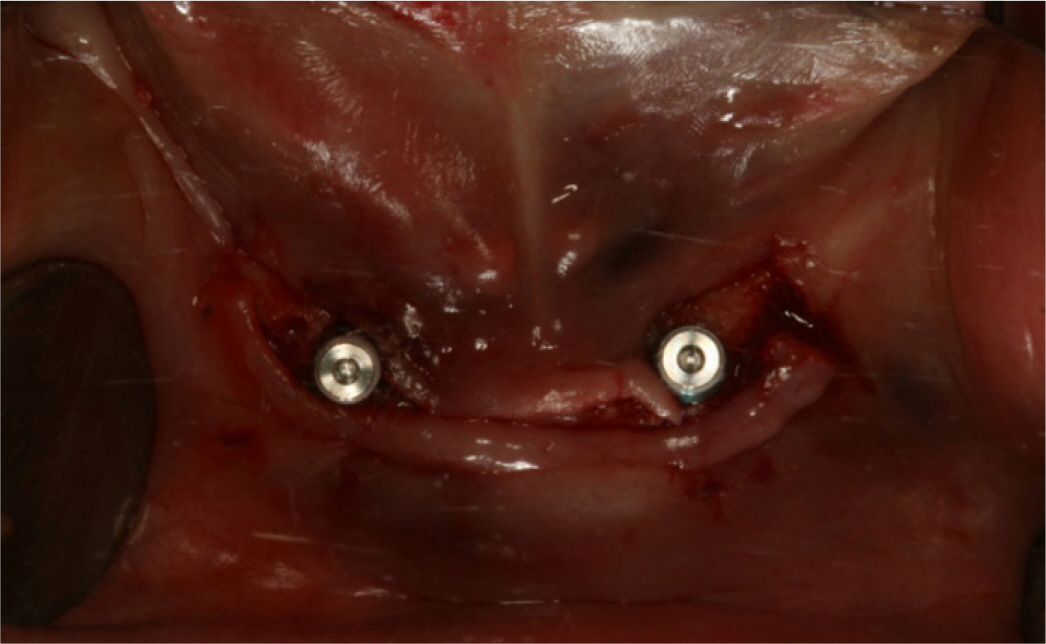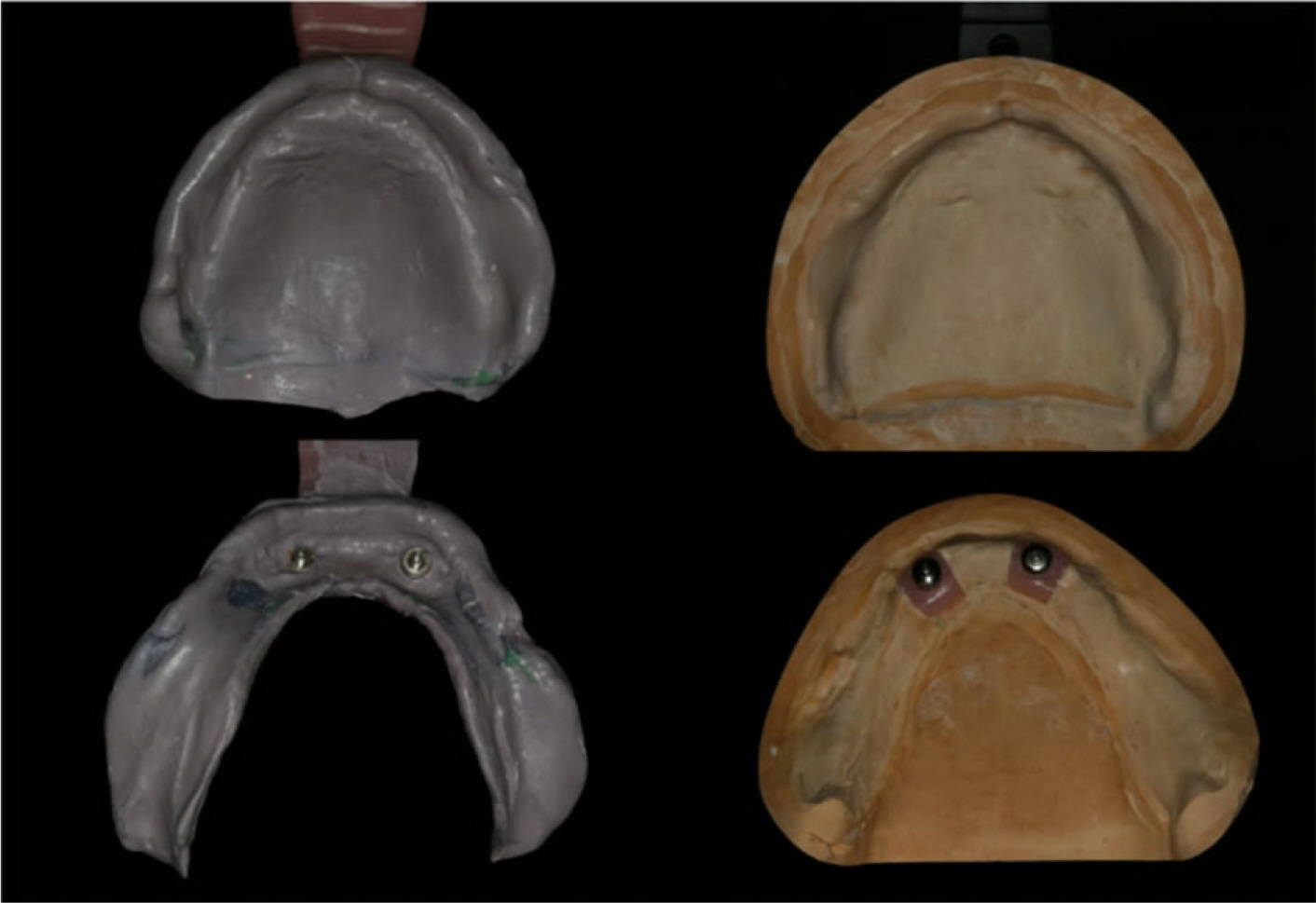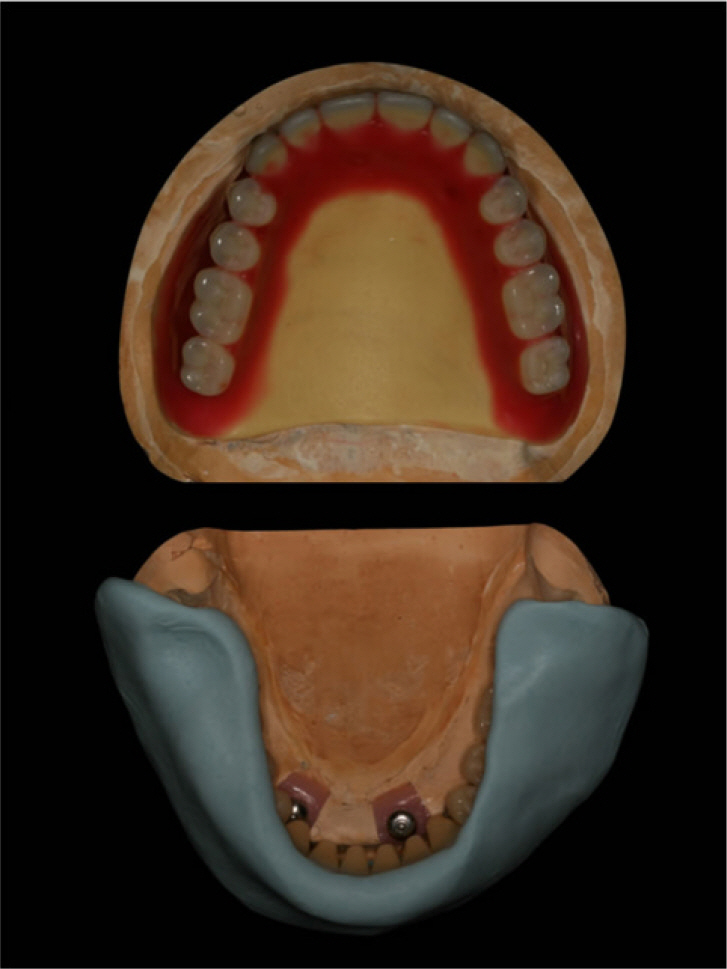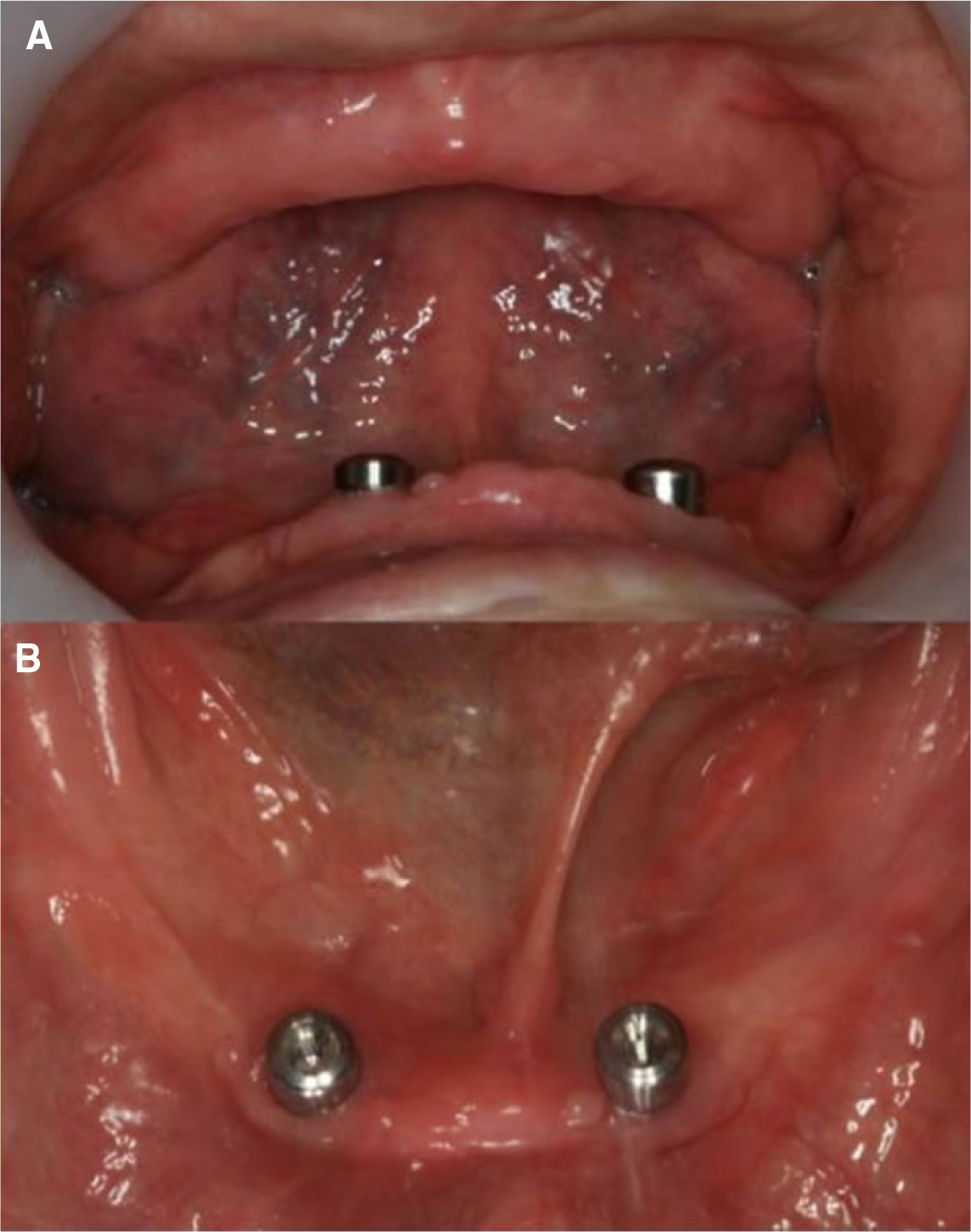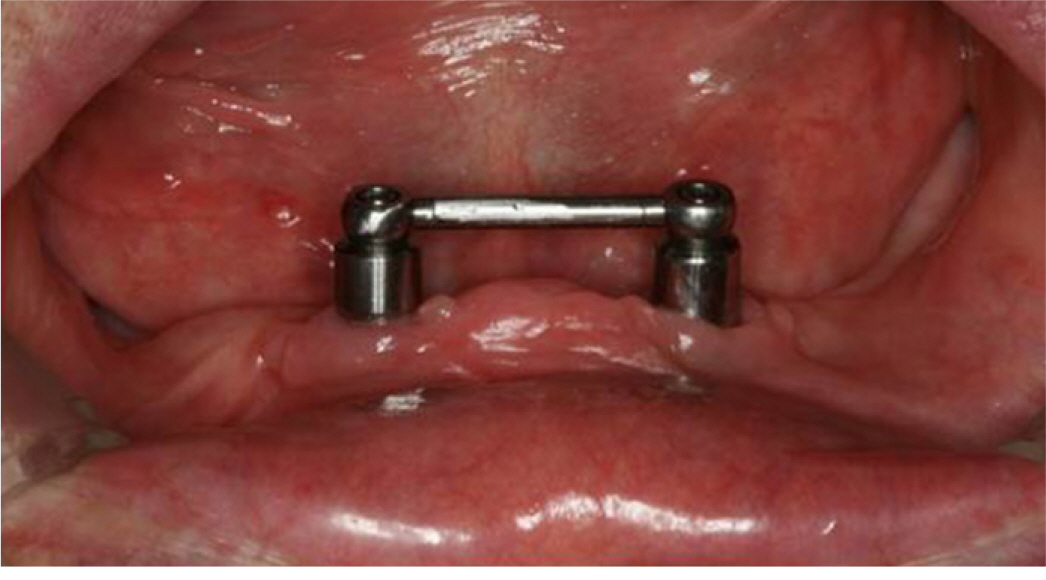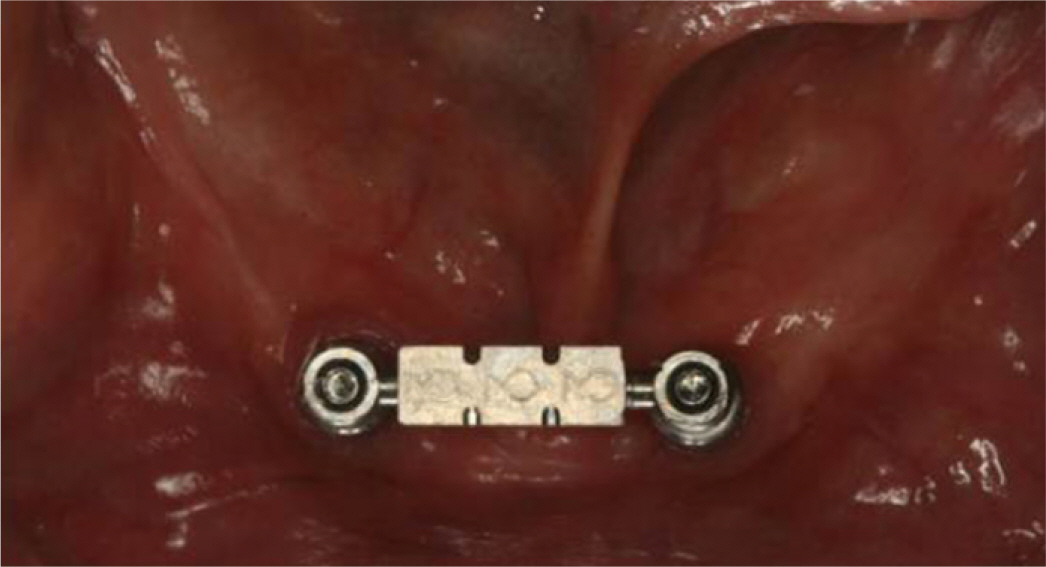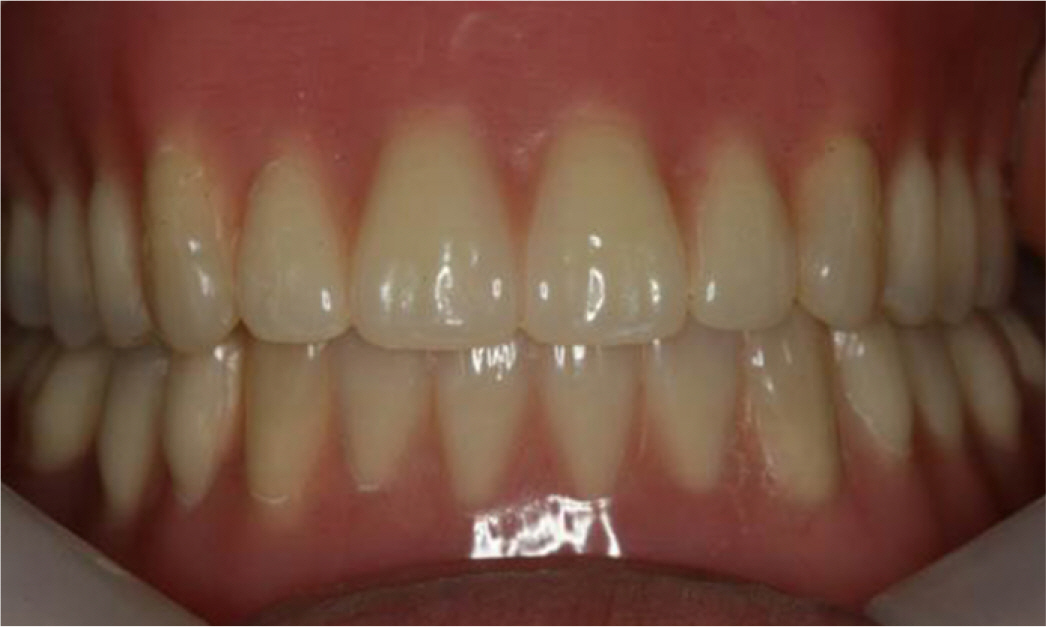J Korean Acad Prosthodont.
2016 Jan;54(1):41-48. 10.4047/jkap.2016.54.1.41.
Implant-retained overdentures with pre-fabricated bar attachment system in edentulous patients
- Affiliations
-
- 1Department of Dentistry, Ajou University School of Medicine, Suwon, Republic of Korea. dragon_001@hanmail.net
- KMID: 2153048
- DOI: http://doi.org/10.4047/jkap.2016.54.1.41
Abstract
- Edentulous patients with severe alveolar bone resorption have trouble with using traditional complete denture. In order to overcome these problems, implant-retained overdenture was developed. SFI-bar(R) system can save time and cost compared to other existing bar systems which need complicated laboratory procedures because it can be adjusted directly in a patient's mouth. A 55-year-old male, who had experienced a fractured lower old implant-retained overdenture, wanted a durable and painless denture. The fractured Locator(R) attachments were removed and edentulous mandible was restored with SFI-bar(R). A 77-year-old female with a medical history of the Parkinson's disease and severely absorbed alveolar bone of mandible, wanted to wear a retentive mandibular denture without pain. After placing two implants in front of mental foramen, two adaptors were connected to two implants and a tube bar was connected to the adaptors. A female part fitted to the bar was attached to the new denture. These clinical reports describe two-implant-retained overdenture using the SFI-bar(R) system in mandibular edentulous patients. Since the patients were satisfied esthetically and functionally during 2 years' observation, we would like to report cases.
MeSH Terms
Figure
Reference
-
1.Petropoulos VC., Smith W., Kousvelari E. Comparison of retention and release periods for implant overdenture attachments. Int J Oral Maxillofac Implants. 1997. 12:176–85.2.Van Kampen F., Cune M., Van der Bilt A., Bosman F. Retention and postinsertion maintenance of bar-clip, ball and magnet attachments in mandibular implant overdenture treatment: an in vivo comparison after 3 months of function. Clin Oral Implants Res. 2003. 14:720–6.
Article3.Feine JS., Carlsson GE., Awad MA., Chehade A., Duncan WJ., Gizani S., Head T., Heydecke G., Lund JP., MacEntee M., Mericske-Stern R., Mojon P., Morais JA., Naert I., Payne AG., Penrod J., Stoker GT., Tawse-Smith A., Taylor TD., Thomason JM., Thomson WM., Wismeijer D. The McGill consensus statement on overdentures. Mandibular two-implant overdentures as first choice standard of care for edentulous patients. Gerodontology. 2002. 19:3–4.
Article4.Thomason JM., Kelly SA., Bendkowski A., Ellis JS. Two implant retained overdentures-a review of the literature supporting the McGill and York consensus statements. J Dent. 2012. 40:22–34.
Article5.Juan F. Martinez Lage Azorin, Gustavo Segura Andres, Joan Faus Lopez, Ruben Agustin Panadero. Rehabilitation with implant-supported overdentures in total edentulous patients: a review. J Clin Exp Dent. 2013. 5:e267–72.6.Hong JW., Ahn SG., Leem DH., Seo JM. Immediate placement and functional loading of implants on canine with fixed partial denture for a patient having canine protected occlusion: a case report. J Adv Prosthodont. 2012. 4:52–6.
Article7.Stoumpis C., Kohal RJ. To splint or not to splint oral implants in the implant-supported overdenture therapy? A systematic literature review. J Oral Rehabil. 2011. 38:857–69.
Article8.Ha SR., Kim SH., Song SI., Hong ST., Kim GY. Implant-supported overdenture with prefabricated bar attachment system in mandibular edentulous patient. J Adv Prosthodont. 2012. 4:254–8.
Article
- Full Text Links
- Actions
-
Cited
- CITED
-
- Close
- Share
- Similar articles
-
- Detachable zirconia prosthesis using Milled bar and ADDTOC attachment in partial edentulous mandible: A case report
- Rehabilitation of edentulous maxilla with implant-supported milled bar overdenture using CAD/CAM customized abutment: A case report
- Implant-assisted overdenture using milled bar and ADDTOC in edentulous maxilla: A case report
- Finite element analysis on stress distribution of maxillary implant-retained overdentures depending on the Bar attachment design and palatal coverage
- Clinical evaluation of implant retained overdentures using two implant and Locator attachments in the fully edentulous mandibles

